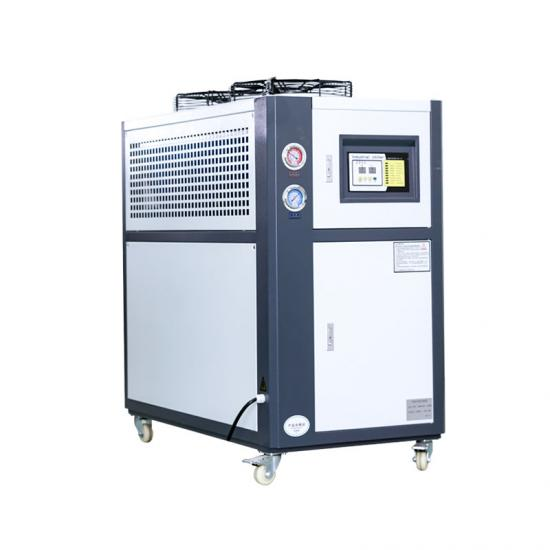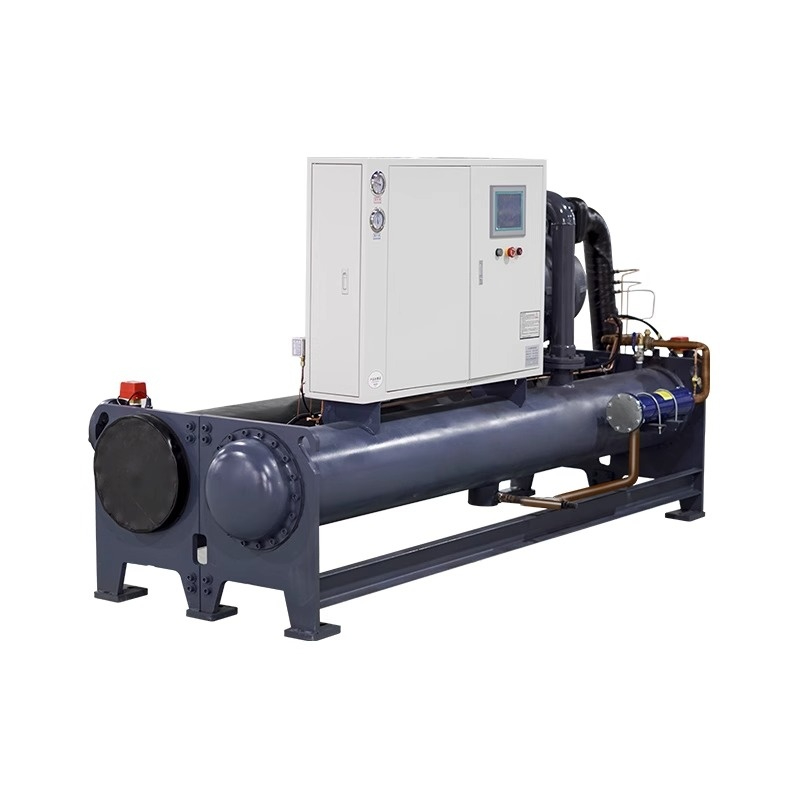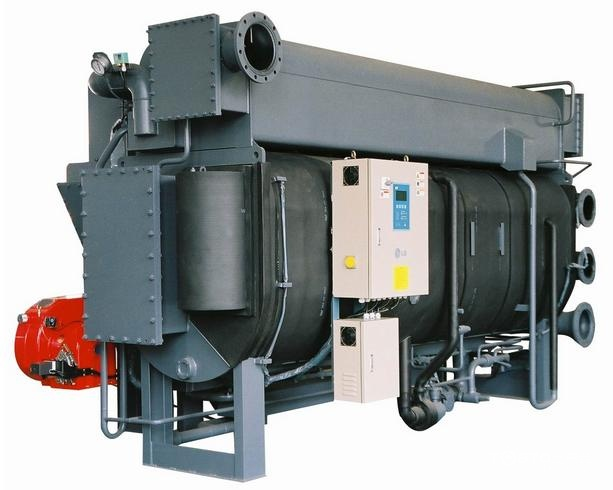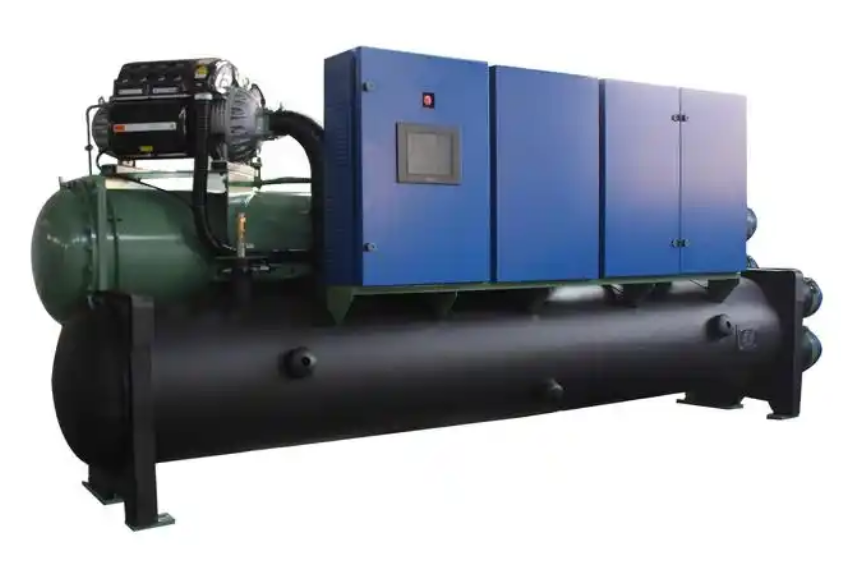The question, “Is a chiller a cooler?” often arises when discussing industrial and commercial cooling systems. While the terms "chiller" and "cooler" are sometimes used interchangeably, they refer to distinct equipment with specific applications and functionalities. Understanding these differences can be crucial for industries relying on precise temperature control.
A chiller is a cooling system designed to remove heat from a liquid, typically water or a water-glycol mixture. This chilled liquid is then circulated through a process or system to lower the temperature of equipment, air, or another medium. Chillers are widely used in industrial processes, HVAC (Heating, Ventilation, and Air Conditioning) systems, and medical equipment.
Types of Chillers
Air-Cooled Chillers

Utilize ambient air to dissipate heat via fans and condenser coils.
Common in smaller or outdoor applications where water availability is limited.

Use water from a cooling tower to transfer heat.
Suitable for large-scale applications requiring high efficiency.
Absorption Chillers

Operate using heat sources like steam, hot water, or combustion.
Often used in environments where electricity consumption needs to be minimized.
Centrifugal Chillers

Employ a centrifugal compressor for high-capacity cooling.
Common in large commercial buildings and industrial facilities.
Components of a Chiller
Compressor: Compresses refrigerant gas, raising its pressure and temperature.
Condenser: Releases heat to the environment or a cooling medium.
Evaporator: Absorbs heat from the liquid being cooled.
Expansion Valve: Reduces refrigerant pressure before it enters the evaporator.
How Does a Chiller Work?
The refrigerant absorbs heat from the liquid in the evaporator, causing the refrigerant to evaporate.
The compressor raises the pressure and temperature of the refrigerant vapor.
The hot refrigerant vapor releases heat in the condenser, returning to liquid form.
The cycle repeats, maintaining a continuous cooling effect.
What Is a Cooler?
A cooler, on the other hand, is a broader term that generally refers to any device or system designed to lower the temperature of an object, substance, or space. Coolers can range from simple ice chests to complex industrial cooling systems. Unlike chillers, coolers are not always designed to cool liquids; they can also cool air or solid objects.
Types of Coolers
Evaporative Coolers
Use the principle of water evaporation to lower air temperature.
Common in dry, hot climates.
Air Coolers
Use fans to circulate air through a cooling medium, such as water or refrigerant-cooled coils.
Designed for specific industrial applications, such as cooling machinery, electronics, or chemicals.
Portable Coolers
Include small, mobile units like ice chests or beverage coolers.
Components of a Cooler
Cooling Medium: Can be ice, water, refrigerant, or a cooling gel.
Fans: Help distribute cooled air.
Heat Exchanger: Transfers heat from the substance to the cooling medium.
How Does a Cooler Work?
The operation of a cooler depends on its type. For example:
Evaporative Coolers: Air passes over a wet surface, and the evaporation of water absorbs heat, cooling the air.
Air Coolers: A refrigerant or cooling medium absorbs heat and dissipates it via a heat exchanger.
Key Differences Between Chillers and Coolers
Although both chillers and coolers serve to reduce temperatures, their differences lie in their design, application, and operation:
Purpose
Chillers: Specifically designed to cool liquids.
Coolers: A general term for systems that cool air, liquids, or solids.
Cooling Medium
Chillers: Use refrigerants and liquid cooling loops.
Coolers: May use air, water, refrigerants, or other media.
Applications
Chillers: Industrial processes, medical equipment, and HVAC systems.
Coolers: Home appliances, portable units, and industrial air cooling.
Complexity
Chillers: More complex systems with components like compressors and expansion valves.
Coolers: Simpler designs in many cases.
Applications of Chillers and Coolers
Chillers: Used in plastic molding, metalworking, and food processing industries to cool machinery and processes.
Coolers: Applied in cooling electronic components, motors, and compressed air systems.
Chillers: Integral to central air conditioning in large buildings.
Coolers: Provide supplemental cooling in localized areas.
Medical Applications
Chillers: Maintain precise temperatures in MRI machines, CT scanners, and lab equipment.
Coolers: Used for short-term storage of medical supplies or samples.
Food and Beverage Industry
Chillers: Cool water or glycol solutions for brewery and dairy operations.
Coolers: Keep food and beverages at a desired temperature in transport or retail settings.
Factors to Consider When Choosing Between a Chiller and a Cooler
Cooling Requirements: Determine whether you need liquid cooling (chiller) or air/solid cooling (cooler).
Energy Efficiency: Evaluate the energy consumption of the system.
Size and Portability: Consider the available space and mobility needs.
Environmental Conditions: Choose systems suited to the ambient climate (e.g., evaporative coolers for dry climates).
Cost: Assess initial investment and long-term operating costs.
While chillers and coolers both play critical roles in temperature control, understanding their differences can help you make informed decisions for your specific needs. Chillers are specialized systems designed to cool liquids, often used in industrial and HVAC applications, whereas coolers encompass a broader range of devices and systems for cooling various substances. By considering factors like cooling requirements, efficiency, and application, you can select the most suitable system for your needs.